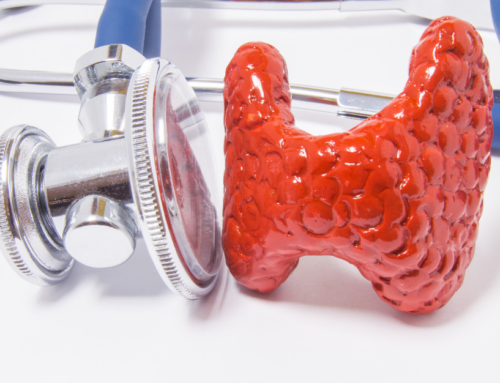
Hashimoto’s hypothyroidism can negatively impact brain health. One way to assess brain health is to look at your balance.
Do you wobble if you stand on one foot? How about with your eyes closed? If you walk in a straight heel-to-toe line do you stumble? How about with your eyes closed? If you stand with your feet together and close your eyes do you sway to one side? Do you walk with a wide gait, or feel like you’re going to fall if you don’t hold the handrail going down the stairs? If you answered yes to any of these questions you have balance issues that could be a sign of compromised brain health and increased risk of dementia later in life. This is important when you have Hashimoto’s because hypothyroidism can also impact brain health, so you want to make sure and take care of your brain.
Balance is governed largely by the cerebellum, the area at the base of the brain that also helps with precision, coordination, and timing of motor movements. The cerebellum is one of the most continually active areas of the brain because not only does it keep you from falling over, it also processes information from gravity.
A healthy cerebellum is important because it constantly feeds a steady stream of information to the entire brain, which is necessary for overall good brain health and function.
This is where problems can occur. When cerebellum function begins to break down, causing such symptoms as worsening balance, this impacts the stream of information going to the rest of the brain. For instance, a healthy cerebellum regulates this stream of information so as not to flood the brain. When the cerebellum degenerates, it can overwhelm the brain with excess input.
This can cause problems in other areas of the brain with symptoms that may seem totally unrelated to balance, including restless leg syndrome, tinnitus, being hyper sensitive to stress, depression, fatigue, anxiety, and many more. These are signs the brain is functioning poorly and degenerating too quickly, increasing the risk of dementia or Parkinson’s later in life.
You’re never too young or too fit to work on improving your balance, especially if you have Hashimoto’s hypothyroidism, as it’s a great way to help protect and preserve brain health.
How to improve your cerebellum health when you have Hashimoto’s hypothyroidism
There are several ways to protect the health of your cerebellum. One is to perform balance exercises, such as the ones listed in the first paragraph. Yoga and tai chi are also beneficial. As your balance improves or if you are already athletic, continually challenge yourself, such as by doing your balance exercises on a wobble board or Bosu ball. Just be safe!
Screen for gluten sensitivity. Believe it or not, a gluten sensitivity could be destroying your cerebellum and your balance. The proteins in gluten are very similar in structure to those in the cerebellum. If your immune system is attacking gluten every time you eat because you are sensitive to it, it could be attacking your cerebellum as well. This is called gluten ataxia and is actually pretty common. For some people, a gluten-free diet is imperative to restoring their cerebellum and balance. It is also important if you have Hashimoto’s hypothyroidism as several studies have shown a link between the disease and gluten sensitivity.
Follow an anti-inflammatory diet and lifestyle. The brain is very sensitive to inflammation, including the cerebellum. Junk foods, sugars and processed carbohydrates, lack of sleep, too much stress, lack of exercise — these are all factors that can accelerate degeneration in the cerebellum and the rest of the brain. They also exacerbate Hashimoto’s hypothyroidism.
Ask my office for more advice on how to protect your brain health.





